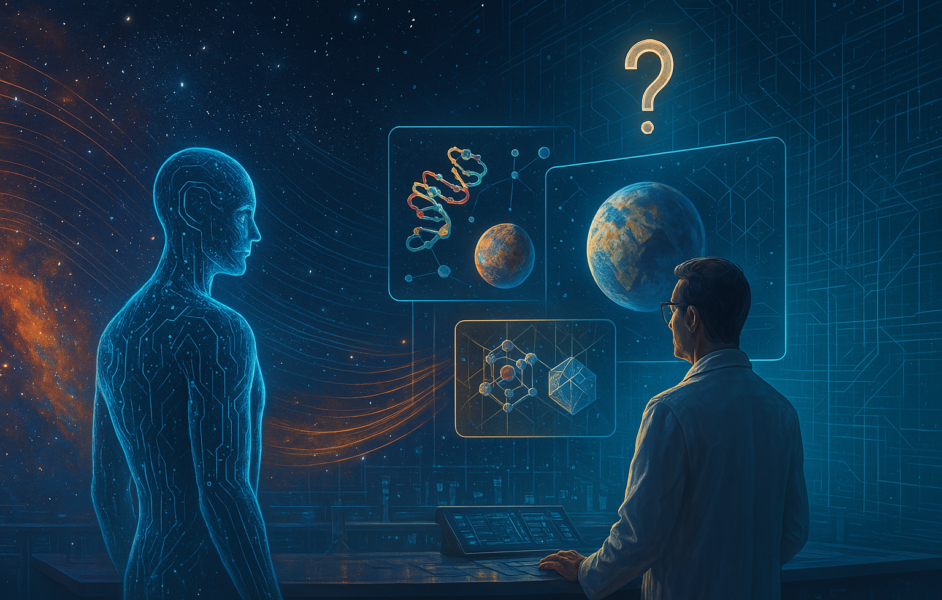Unleashing the Power of Artificial Intelligence in Scientific Discoveries
Artificial Intelligence (AI) is rapidly evolving and making significant impacts in various industries, including healthcare, finance, education, and entertainment. One of the most exciting areas for AI is scientific research, where its capabilities are accelerating the pace of discovery. But can AI truly think outside the box and generate original ideas like human scientists?
The Role of AI in Driving Scientific Progress
AI has revolutionized fields such as drug discovery, genomics, materials science, climate research, and astronomy by processing vast amounts of data and identifying patterns that humans might overlook. From discovering new antibiotics to predicting 3D protein structures, AI has been instrumental in pushing the boundaries of scientific knowledge.
Exploring the Creative Potential of AI
While AI has shown prowess in generating new hypotheses and proposing innovative solutions, its creativity is still questioned. Unlike human scientists who rely on intuition and creativity, AI operates within set parameters dictated by data and algorithms. Can AI truly break through established paradigms and think outside the box?
Debating AI’s Creativity in Scientific Endeavors
Proponents argue that AI can offer unique perspectives and suggest novel ideas that human researchers might overlook. However, critics point out that AI’s creativity is limited by existing knowledge and datasets, hindering its ability to make groundbreaking discoveries.
The Collaborative Future of AI and Human Creativity
While AI plays a crucial role in scientific discoveries, it is most effective when combined with human creativity. By leveraging AI’s analytical capabilities and human ingenuity, researchers can accelerate breakthroughs and unlock new realms of exploration.
The Future of AI in Science: Enhancing Discoveries Through Collaboration
As AI continues to shape scientific research, it is essential to recognize its potential while ensuring that it complements, rather than replaces, human efforts. By fostering collaboration between AI and human scientists, we can unlock unprecedented advancements in science and pave the way for new discoveries.
-
Can AI truly think outside the box when it comes to scientific discoveries?
AI has the potential to think outside the box by analyzing vast amounts of data and identifying patterns that humans might overlook. This ability can lead to novel and groundbreaking scientific discoveries. -
How does AI contribute to scientific discoveries?
AI contributes to scientific discoveries by accelerating the data analysis process, identifying correlations, and predicting possible outcomes. Its ability to process large datasets quickly can lead to new discoveries and insights. -
Is AI capable of coming up with completely original ideas in scientific research?
While AI can generate new ideas and hypotheses based on existing data, its ability to come up with completely original ideas is limited. However, AI can still play a valuable role in suggesting ideas that can be further explored and tested by human researchers. -
How does AI’s ability to think outside the box compare to human researchers?
AI’s ability to think outside the box is different from that of human researchers. While AI can quickly process and analyze vast amounts of data to identify patterns and relationships, human researchers bring creativity, intuition, and deep understanding of their fields to the table. Combining the strengths of AI and human researchers can lead to more innovative and impactful scientific discoveries. - How can scientists ensure the ethical use of AI in scientific research?
Scientists can ensure the ethical use of AI in scientific research by being transparent about the data sources used, the algorithms employed, and the limitations of AI systems. Additionally, researchers should regularly review and audit AI systems to minimize biases and ensure the accuracy of their findings. Collaboration among multidisciplinary teams, including ethicists and policy experts, can help guide the responsible use of AI in scientific discoveries.

